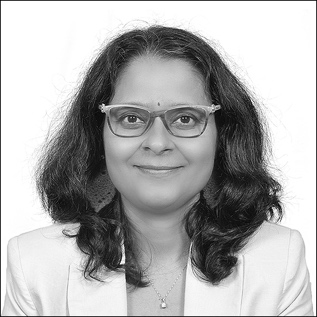Brief CV
Name: Dr. Madhavi Indraganti – Associate Professor
Email: madhavi@qu.edu.qa
Courses Taught (past two years)
ARCT 411 – Architectural Design Studio – VI, ARCT 511– Senior Project Preparation and Programming, ARCT 520 – Landscape Architecture, ARCT 340 & ARCT 341 – Structures in Architecture I (Concrete) & II (Shell and Steel Structures); ARCT 512 – Senior Project, ARCT 333 – Construction Drawing and Detailing – II; ARCT 320 – Design methods and Theories; ARCT 212 – Design studio -2, ARCT 241: Theory of Structures – II, MUPD 601– Research and Statistical Analysis in Planning, MUPD 760 – Thesis Focuses on Urban Design; MUPD 712 – Evolution of Built Form and Townscapes, ARCT 110 – Graphic Communication – I; ARCT 531 – Ethics and Professional Practice; DENG 699 – Ph.D Thesis (5 students).
Educational Credentials
- Teaching in Higher Education Fellowship, Harvard Graduate School of Education (HGSE), USA and Qatar University, Qatar | 2024
- D. (Architecture), School of Planning and Architecture, Jawaharlal Nehru Architecture and Fine Arts University, India | 2009
- Tech.(Building Sc. & Const.Mgmt), Indian Institute of Technology Delhi (IITD), India | 1993
- Arch. (5 Year Professional Degree), School of Planning and Architecture, Jawaharlal Nehru Architecture and Fine Arts University, India | 1991
Teaching Experience
- Department of Architecture and Urban Planning, Faculty of Engineering, Qatar University, Doha, Qatar, 2017 – present
- Associate Professor (Tenured), Department of Architecture & Interior Design, Prince Sultan University, Riyadh- Kingdom of Saudi Arabia, 2014 – 2015
- Associate Professor and Head of Department of Architecture, SV College of Architecture, Hyderabad, India, 1996 – 2008
Research and Professional Experience
- Fulbright Fellow, Fulbright Program, University of California, Berkeley, USA.
- JSPS Fellow, Japan Society for Promotion of Science and The University of Tokyo, Japan
- Architect, ECC Construction Group, Larsen & Toubro Limited, Chennai, India
Licenses/Registration
- Life Member, Council of Architecture, India (1991 – )
Selected Publications and Recent Research (Scopus h- index: 22; Scopus Citations 2375)
- S,Indraganti. M, Jawarneh, N. R. Urban planning impact on summer human thermal comfort in Doha, Qatar. Building and Environment. Volume 254 (2024) 111374.
- S,Indraganti. M, Jawarneh, N. R. Land Surface Temperature Responses to Land Use Dynamics in Urban Areas of Doha, Qatar, Sustainable Cities and Society, Vol 104, (2024) 115273.
- S,Indraganti. M, Jawarneh, N. R. A comprehensive systematic review: Impact of Land Use/ Land Cover (LULC) on Land Surface Temperatures (LST) and outdoor thermal comfort. Building and Environment. Volume 249 (2024) 111130.
- C, Indraganti. M, Tucho, G.T, Alemayehu. E, “Study on Adaptive Thermal Comfort Model and Behavioral Adaptation in Naturally Ventilated Residential Buildings, Jimma Town, Ethiopia,” Energy and Buildings (2023), 113483, August 2023, Elsevier.
- M, Humphreys M.A, “A comparative study of gender differences in thermal comfort and environmental satisfaction in air-conditioned offices in Qatar, India, and Japan,” Building and Environment, Volume 206, Article 108297 (Dec 2021)
- S, Indraganti. M, “Evaluation of thermal comfort in two neighboring climatic zones in Eastern India—an adaptive approach,” Energy and Buildings Vol 21315 (2020) Article 109767
- M, Djamel. B, ““An adaptive relationship of thermal comfort for the Gulf Cooperation Council (GCC) Countries: The case of offices in Qatar,” Energy and Buildings 159 (2018) 201–212.
- M, Ooka. R, and Rijal. HB, “Thermal Comfort in Offices in India: Behavioral Adaptation and the Effect of Age and Gender,” Energy and Buildings 103 (2015) 284–295.
- M, Ooka. R, Rijal. HB and Gail S Brager, “Adaptive model of thermal comfort for offices in hot and humid climates of India,” Building and Environment, 74 (2014) 39-53.
- M, “Understanding climate sensitive architecture of Marikal, a village in Telangana region in Andhra Pradesh, India,” Building and Environment, 45 (2010) 2709-2722.
Research Projects (Selected list)
- 01/2025 – 01/2027 Geospatial analysis of temperature effects on outdoor thermal comfort and vegetation health: Informing sustainable urban planning policies in Qatar, (QUCG – 671) QR 299,780, LPI; 02/2024 – 02/2025, Investigation of window opening and fan use behavior in offices in Qatar (UREP30-038-2-013) by QNRF USD 15000; LPI; 06/2020 -12/2021: Evaluation of bio-climatic conditions and human thermal perceptions outdoors and residential indoors in Qatar (University precincts) (UREP26-034-2-010, -011) by Qatar National Research Foundation (QNRF); USD 30,000.
